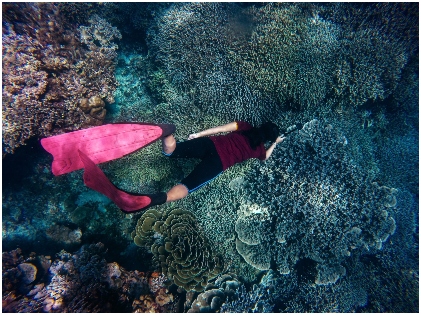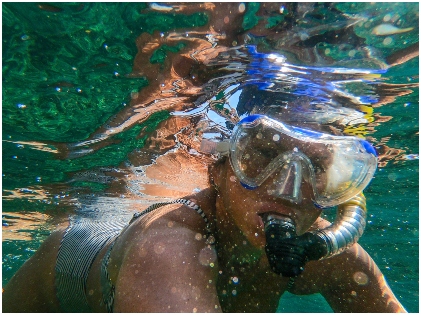
Should You Get Insurance if You Go Snorkeling and Scuba Diving?

 Snorkeling and scuba diving are said to be some of the most popular vacation activities for tourists, especially in various tropical locations. Snorkelers and divers can get a lifetime experience right below the water’s surface, and find out everything right from the sea turtles and vibrant coral to sharks and shipwrecks. All these activities are fascinating and thrilling, however, these may also turn out to be risky. To make the diving experience risk-free and safe, you should go for scuba and snorkeling insurance to ensure you get quality medical care if you face any issues.
Snorkeling and scuba diving are said to be some of the most popular vacation activities for tourists, especially in various tropical locations. Snorkelers and divers can get a lifetime experience right below the water’s surface, and find out everything right from the sea turtles and vibrant coral to sharks and shipwrecks. All these activities are fascinating and thrilling, however, these may also turn out to be risky. To make the diving experience risk-free and safe, you should go for scuba and snorkeling insurance to ensure you get quality medical care if you face any issues.
It’s said that one million people worldwide get scuba certification each year. In 2017 alone, there have been eight million people who indulged in the same only in the United States. As the popularity of these activities starts increasing so do the risk of accidents. The risk of snorkeling includes things like injuries and medical evacuation and cancellation of your dream dive trip. You must opt for a comprehensive travel insurance plan, and cover for unexpected incidents.
Unique Risks Associated with Scuba Divers
 While diving is said to be one of the safest sports and within the limits of training and experience, there are unique risks associated with insurance companies that regard it as one of the extreme sports. One of the most painful scuba diving injuries includes decompression sickness (DCS) or what is more commonly known as the bends. Divers suffer from this when the excess nitrogen gas gets into body tissues and expand and attempts to escape from the body through the shortest route, that is the tissue.
While diving is said to be one of the safest sports and within the limits of training and experience, there are unique risks associated with insurance companies that regard it as one of the extreme sports. One of the most painful scuba diving injuries includes decompression sickness (DCS) or what is more commonly known as the bends. Divers suffer from this when the excess nitrogen gas gets into body tissues and expand and attempts to escape from the body through the shortest route, that is the tissue.
Recreational divers who follow guidelines for no-decompression diving are much less likely to suffer from the incidence of DCS. However, all Scuba diving limits are based on theoretical models, even when you follow all the guidelines, there may always be a chance for you to suffer from DCS.
How Does Travel Insurance Cover Snorkeling and Scuba Diving?
Scuba diving insurance isn’t something most people think about. It is also not covered under most travel insurance. Usually, an optional add-on for hazardous sports may be required to be covered for diving. Apart from these, there are certain limitations and restrictions for each plan that are related to the depth of the dive and the level of certified instructor supervision. Recreational snorkeling is in fact covered by most travel insurance plans, but whether you’re going for snorkeling or diving, ensure you read your policy details closely before you grab your flippers and jump right into the water.
Safe Snorkeling and Scuba Diving
While you’re on your adventure, ensure you keep a few things in your mind. Before you go diving you may have to take a safety course with a tour company and get scuba certification through the licensed dive school.
Unless you are a very experienced diver, you need to dive in with the help of licensed instructors. Your risk of injury becomes much lower when you dive with tour companies and individuals who know all about the area, body of water, and the nitty-gritty of staying safe. Focus on local warnings and don’t dive or snorkel in the areas that are regarded as dangerous by local authorities. Also, ensure you take note of riptide and current warnings. It is always necessary to have someone with you when you are going diving.
Dive Insurance Coverage
 Scuba travel insurance covers the medical expenses of scuba diving accidents. The odds of a major scuba diving accident are low when you are diving within the limits of training, but the costs seem high. Treatment in a recompression chamber can follow the development of the bends and can cost you up to thousands of dollars. Apart from covering the cost of medical expenses, dive insurance can cost a lot of things, such as the cost of transportation from the dive site to the hospital, the travel expenses also cover things such as diving accidents, and lost, stolen, or damaged equipment.
Scuba travel insurance covers the medical expenses of scuba diving accidents. The odds of a major scuba diving accident are low when you are diving within the limits of training, but the costs seem high. Treatment in a recompression chamber can follow the development of the bends and can cost you up to thousands of dollars. Apart from covering the cost of medical expenses, dive insurance can cost a lot of things, such as the cost of transportation from the dive site to the hospital, the travel expenses also cover things such as diving accidents, and lost, stolen, or damaged equipment.
The exact details of coverage will vary as per the insurers, so it’s always a great idea to check the coverage limits and know what covers in the purchasing. You may need to upgrade the coverage if it’s insufficient. Do a little research to find out exactly which one caters to your specific needs and go for it.
More in Anti-Aging
-
`
Jennifer Aniston’s Timeless Tips for Health and Youthfulness
Iconic Hollywood actress Jennifer Aniston has long been admired for her acting prowess and seemingly ageless beauty and vitality. Now in...
November 22, 2023 -
`
Unleash Your Entrepreneurial Drive: 5 Strategies for Self-Motivation
5. Have an Undying Passion Passion is the driving force behind the world’s most successful entrepreneurs. Self-motivation becomes second nature when...
November 19, 2023 -
`
How to Go Vegan – The Right Way!
The vegan lifestyle has seen a significant surge in popularity lately, and rightly so. Embracing veganism not only fosters personal health...
November 12, 2023 -
`
7 Eye-Opening Reasons to Drink More Water
Water is frequently hailed as the quintessential elixir for life, and rightfully so. Constituting approximately 60% of our total body weight,...
November 1, 2023 -
`
Drake’s Workout Regimen: How the Canadian Rapper Stays Fit
The lights dim, the stage is set, and the crowd’s anticipation is palpable. When the beat drops, there is one Canadian...
October 24, 2023 -
`
Why Six-Figure Family Holidays Are Becoming the New Normal
In the panoramic landscape of the modern travel scene, a particularly glittering trend is emerging, akin to finding a diamond the...
October 21, 2023 -
`
Foods With High Water Content
Water is the elixir of life, and staying adequately hydrated is crucial for maintaining our health and well-being. While sipping on...
October 15, 2023 -
`
The Impact of Wearable Technologies in Health Research
In recent years, wearable technologies have emerged as a powerful tool in health research, revolutionizing how we collect and analyze data...
October 3, 2023 -
`
How Celebrities Stay Fit? Secrets of Chris Pratt, Jennifer Lopez & More
The glitz and glamor of Hollywood may make it seem impossible for celebrities to maintain an enviable physique. But it is...
September 29, 2023















You must be logged in to post a comment Login